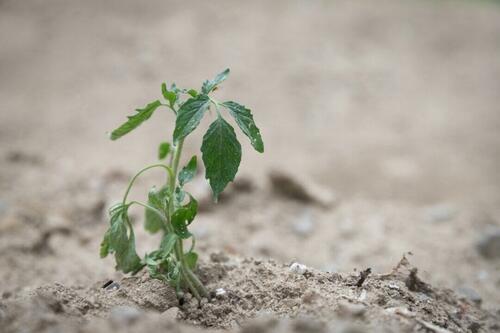Geoengineering Is No Longer Just A Theory
Authored by Mollie Engelhart via The Epoch Times,
Most people check the weather the way they check traffic or the time. Rain might mean rearranging plans or canceling a child’s T-ball game. A cold snap might simply mean pulling out a sweater or your favorite tweed jacket. Weather, for most people, is an inconvenience or a conversation starter. Because when you need water, you turn on a faucet. When you’re cold or hot, you adjust the thermostat. Weather becomes background noise rather than a force that shapes survival.
For farmers, weather is everything.
We don’t just look at the forecast. We live by it. We watch humidity, wind patterns, soil temperature, and cloud formation with the kind of attention most people reserve for financial markets or national security briefings. A few degrees of difference can determine whether a crop thrives or dies. We wait for moisture the way some people wait for medical news. Because one wrong call can erase months of work.
Earlier this year, the temperatures had been in the high 90s for weeks. Summer seemed to arrive early, and the weather service confidently projected warm, stable nights in the 50s. Based on that forecast, we continued preparing the greenhouses and tending the spring crops. Everything looked promising.
Then one Monday morning in late April, we woke up to ice. Not frost. Ice.
Our greenhouses weren’t sealed, because the forecast told us we were safe. The propane heaters inside are set to turn on automatically at 38 degrees, and they ran full force all night. By sunrise, we had burned through $5,000 in propane, and everything was still dead. Every spring tomato. Every cucumber. Tender annuals. Guavas, lemons, and young tropicals. Outside the greenhouse, brand-new kale and broccoli seedlings that had finally established themselves were frozen limp and useless.
There was no warning. Just loss.
That is what it means when a farmer mentions the weather. He isn’t complaining. He is praying that a single cold snap, drought, hailstorm, or unpredictable shift doesn’t take away his livelihood. We do everything we can, but the weather still decides what survives.
Which is why the cultural conversation around climate and weather is so interesting. We’ve been quick for years to talk about climate change. And I’ve always said: If we’re going to talk about climate change, we also have to talk about geoengineering. Because at this stage, it’s hard to know where one ends and the other begins. It’s hard to know whether the shifts we’re experiencing are natural, human-caused, manipulated, or some combination of all three. It’s even fair to ask whether climate change exists in the exact framework we’ve been presented—or whether geoengineering exists in the exact framework we’ve been told—or whether the lines have been blurred without transparency.
This was once considered wild conspiracy, the kind of thing people joked about with tinfoil hat references. Yet now it’s discussed openly. Amazon Prime hosts documentaries about it. Universities conduct research on it. Weather modification companies operate publicly in multiple states. Government agencies acknowledge it.
Today here in Kerr County, after heavy flooding, a CEO of a weather modification company made a point to assure the public that his cloud seeding was not responsible for the rainfall. I’m not claiming it was. But when someone feels compelled to explain themselves for something everyone swore didn’t exist 10 years ago, the conversation has already changed.
And that leads to a reasonable and necessary question:
What is the ripple effect?
Weather is a system. Everything in nature is interconnected. If you add rain here, does that mean less rain somewhere else? If you alter cloud structure or reflect sunlight, does that shift wind patterns, soil moisture, or storm behavior? If we inject particles into the atmosphere to cool temperatures globally, what happens to regional rainfall, food systems, ecosystems, and planting zones?
Farmers think this way because we live in the reality of consequences. We don’t work in theory. We work in soil, water, frost, and risk. Every decision has an outcome.
So if geoengineering and cloud seeding are now part of public policy, private industry, and scientific pursuit, then the people whose lives depend most on natural systems deserve transparency. We deserve honesty. We deserve oversight. And we deserve a voice before—not after—changes are made.
We can choose what we eat and what we put on our bodies. But we cannot choose what falls from the sky.
Weather is not a casual headline or a political slogan. It’s the difference between feeding our community or losing everything. If climate change is real in the way we’ve been told, then geoengineering absolutely matters. If geoengineering is now a reality, then the climate narrative cannot be discussed without it.
The sky is not a laboratory. It is a life support system.
And the question that remains is not whether these experiments are helpful, harmful, necessary, or misguided.
The real question is much simpler.
Did the people beneath the sky ever consent?
Because I don’t remember being asked. And I doubt most people do.
Views expressed in this article are opinions of the author and do not necessarily reflect the views of The Epoch Times or ZeroHedge.
Tyler Durden
Sun, 11/23/2025 – 21:00ZeroHedge NewsRead More





 R1
R1
 T1
T1


